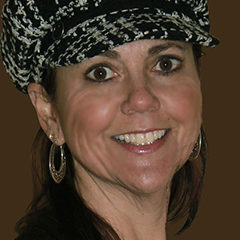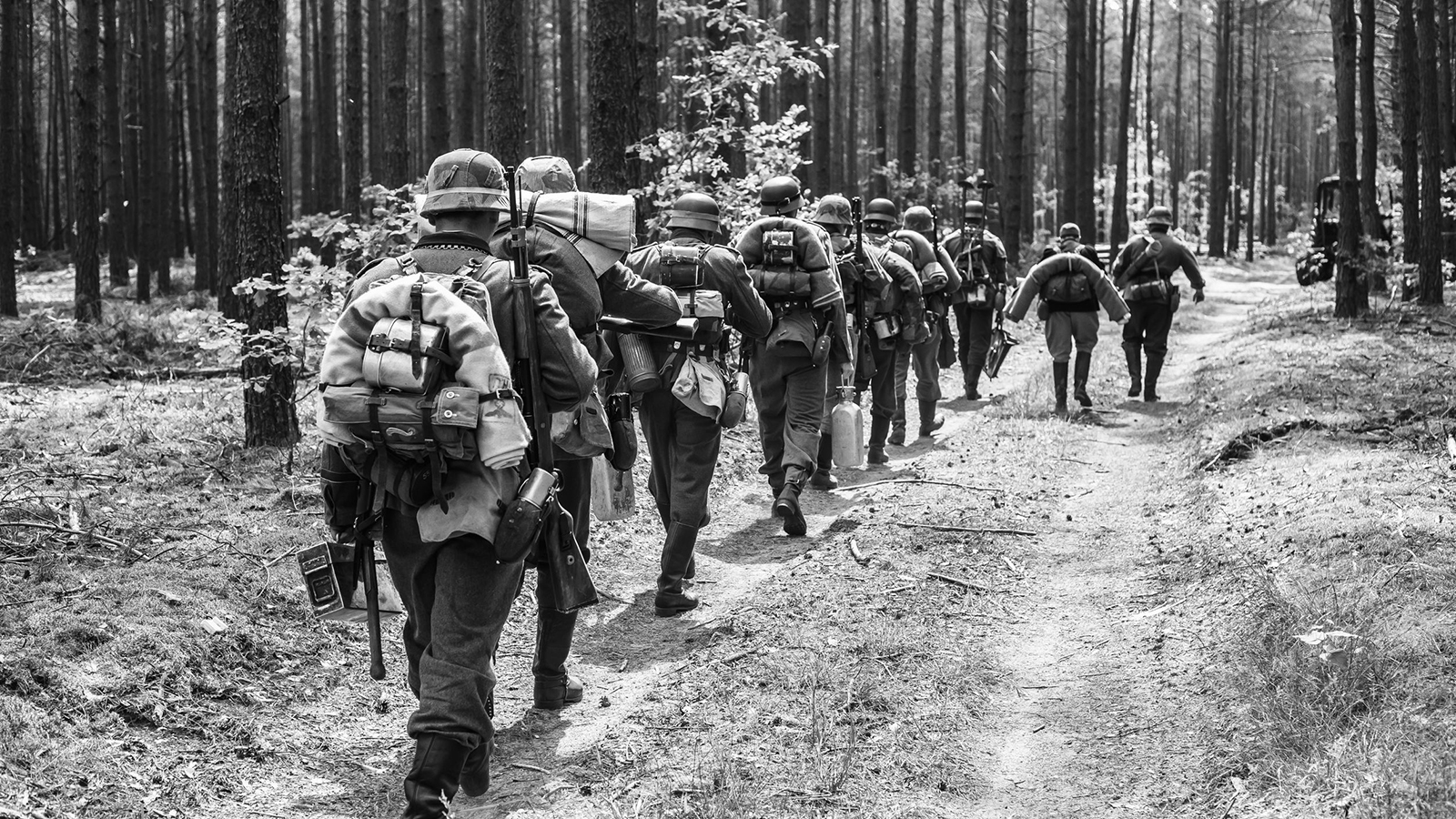
How two travelers from East Bufu Reno …
Connect with Nigerian priests, Bavarian beer drinkers and Syrian refugees and the ghosts of WWII
Dear Ravers,
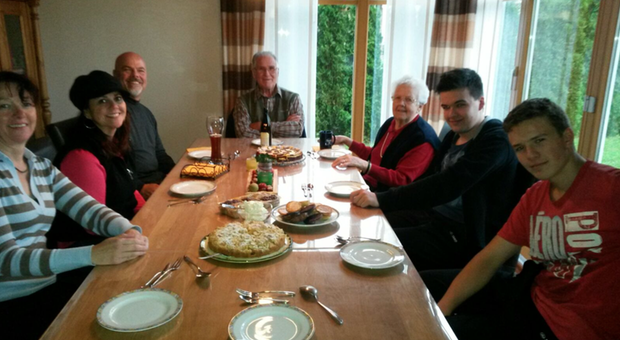 My husband, Jim, and I are sitting at the kitchen table of friends, a couple of weeks ago, in a small, 800-year-old village of Poppenhausen, about an hour and a half northeast of Frankfurt. Their extended family has occupied this exact plot of land for much longer than our nation is old. Over traditional afternoon coffee and apple dessert, I’m asking questions of our friend’s parents, both in their 80’s, who speak only German, about what their life was like during WWII and their relationship with the Americans during the occupation. Their teenage grandkids are my interpreters.
My husband, Jim, and I are sitting at the kitchen table of friends, a couple of weeks ago, in a small, 800-year-old village of Poppenhausen, about an hour and a half northeast of Frankfurt. Their extended family has occupied this exact plot of land for much longer than our nation is old. Over traditional afternoon coffee and apple dessert, I’m asking questions of our friend’s parents, both in their 80’s, who speak only German, about what their life was like during WWII and their relationship with the Americans during the occupation. Their teenage grandkids are my interpreters.
I guess I should back up a bit as to how we ended up at that table.
Back in 1990, I was working for an international import company. I enthusiastically volunteered to make housing arrangements for a German intern who would be working for us for three months.
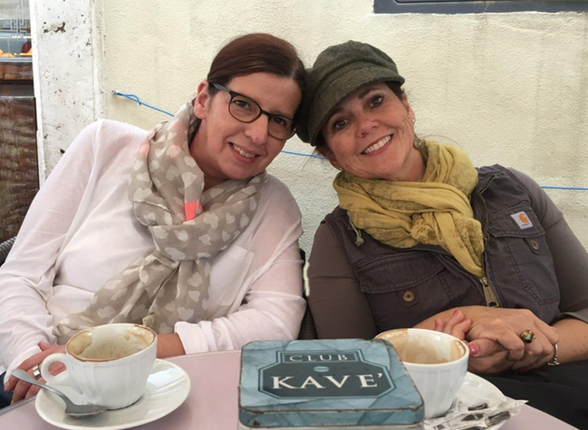 Her name was Doris. Her family had owned a candle making factory since 1899, which was destroyed in WWII by the Allies and then rebuilt. The summer of her arrival, the East German military officially began dismantling the Berlin Wall.
Her name was Doris. Her family had owned a candle making factory since 1899, which was destroyed in WWII by the Allies and then rebuilt. The summer of her arrival, the East German military officially began dismantling the Berlin Wall.
We were both 24.
My then boyfriend (the same Jim) helped her find wheels (a 74 VW Beetle of all things). One of my first memories is of her looking at our washer and dryer and confessing that she’d never done her own laundry. Jim, always ever so direct, nicknamed her the “German Princess,” and despite that, and making her watch, what she thought was a ridiculous skit on Saturday Night Live called Sprockets about Germans, the three of us immediately resembled long-lost siblings.
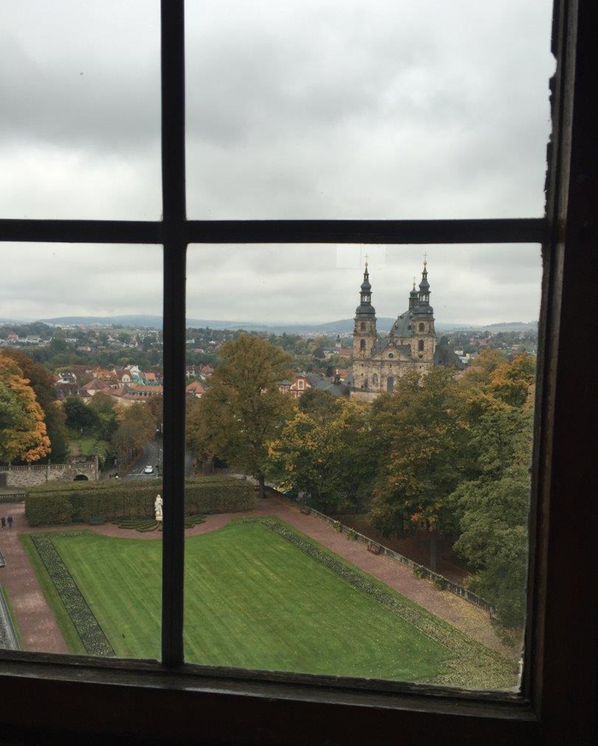 The following year, I waited at SFO for another intern. I confess that I thought Doris was unique; after working for a German-owned company with German speaking bosses, I figured her warmness wasn’t “typically” German. I feel small admitting to that. Martin came out of the gate, a huge smile on his face, with a heart so huge that he left his mark on so many of us during his six months in the U.S.
The following year, I waited at SFO for another intern. I confess that I thought Doris was unique; after working for a German-owned company with German speaking bosses, I figured her warmness wasn’t “typically” German. I feel small admitting to that. Martin came out of the gate, a huge smile on his face, with a heart so huge that he left his mark on so many of us during his six months in the U.S.
Jim fixed HIM up with transportation, an old Yamaha motorcycle, which Martin, in his leather jacket and scarf, rode to explore the West Coast, favoring “Highway Number One.” Martin’s nickname was the “Time Sergeant,” as on any trip he planned, he kept his companions on a regimented schedule so that they wouldn’t miss any attraction. (The same happened this October).
Immediately after Doris and Martin’s internships, we were THE “California” connection and hosts of their friends and family who made the “great U.S. road trip,” including Martin’s cousin Gregor, whose kitchen we were now sitting in 25 years later. (His nickname is the “Governor” as because of his family’s presence in the town for centuries everyone knows him wherever we go).
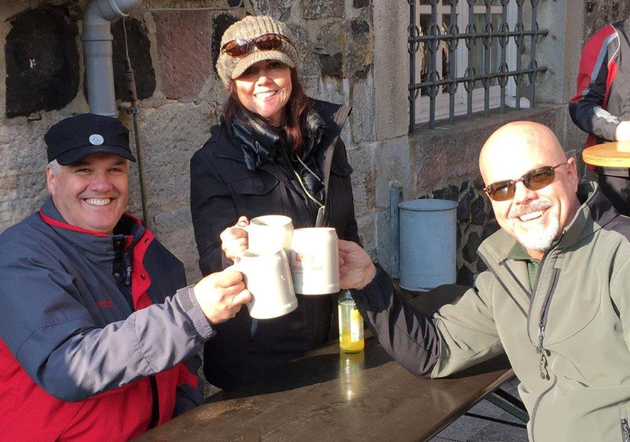 I grew up with a mom, who, until the day she died, had nightmares about the maimed soldiers she treated, sent home from battlefields in Europe. And uncles who would never speak about what they saw when they fought Germans in Italy and Africa. Likewise, our German friends grew up with active U.S. military bases in their backyards, and rubble from Allied bombings and elders who had fought Americans.
I grew up with a mom, who, until the day she died, had nightmares about the maimed soldiers she treated, sent home from battlefields in Europe. And uncles who would never speak about what they saw when they fought Germans in Italy and Africa. Likewise, our German friends grew up with active U.S. military bases in their backyards, and rubble from Allied bombings and elders who had fought Americans.
All of us were born 20 years after the end of WWII, yet our conversations to this day are still delicate; with our friends, there’s a shame that they’ve somehow absorbed as their own when they talk about the Nazis. At the same time, their families have a passion and a love for the Americans who saved them from the Russians so many years ago. Throughout the years, Jim and I have talked privately about our visits to Germany – and the tendrils of embarrassment we all carry, from a war that ended nearly seven decades ago.
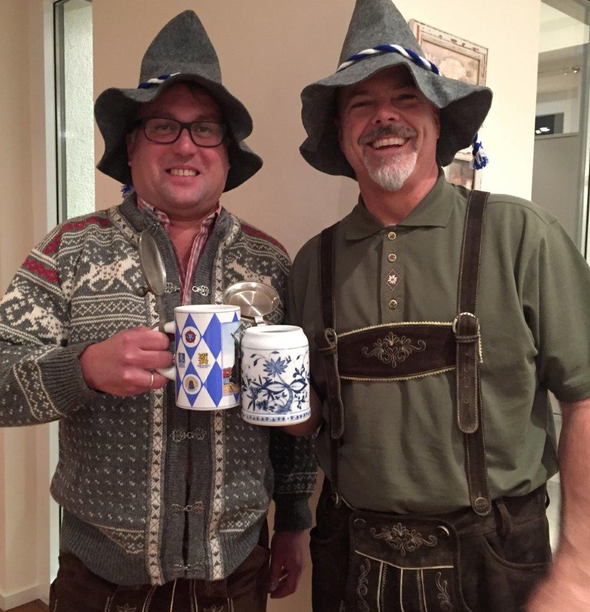 Fast forward 25 years and we find ourselves at that kitchen table, three generations. Just that morning we had crossed over the old East German border – without really knowing it. Seems like we should have. We’d visited Point Alp ha , a previous observation point of the U.S. during another type of conflict, the Cold War. Not everything that day is focused on war; we also visit Kreuzberg Monastery, where monks have brewed their own beer since the 1700’s. We also did some mighty fine alpine coasting in the same historic area.
Fast forward 25 years and we find ourselves at that kitchen table, three generations. Just that morning we had crossed over the old East German border – without really knowing it. Seems like we should have. We’d visited Point Alp ha , a previous observation point of the U.S. during another type of conflict, the Cold War. Not everything that day is focused on war; we also visit Kreuzberg Monastery, where monks have brewed their own beer since the 1700’s. We also did some mighty fine alpine coasting in the same historic area.
Throughout our week in Germany with the Princess, the Time Sergeant and the Governor’s family, we talk a lot about the huge humanitarian effort that Germany is doing on behalf of Syria. Just abo ut a quarter of a mile from Martin’s house, there is a temporary shelter for refugees. Using old buildings, schools and military bases, Germans have already accommodated hundreds of thousands of refugees, and are expecting over 1.5 million more by the end of this year. More than any other country in Europe.
Our friends unilaterally support their Chancellor’s steadfast policy, as the “right thing to do.” We found that kindness and great humanitarianism throughout all three groups of friends, even though they are from different areas in Germany and of somewhat different incomes. You could argue that our friends are anomalies; whatever they are, I’m proud of them, as well as the history that their country is making now.
Throughout our three-week adventure in Germany and Italy this past October, through every conversation with locals and fellow travelers, I was reminded of how much we are all alike rather than different, regardless of our age, sex, class, education or country of origin.
This was evident while I was eating lunch with a group of rowdy Dominican priests from Nigeria, and interviewing an elderly native Venetian woman along a canal over a cappuccino, and sharing travel tips with blokes from Edinburgh over cocktails in Campo di’Fiori, Rome, and swiggin’ beer with Bavarians wearing dirndl and lederhosen (ah, yes, we did). Laughter, compassion, curiosity, a taste for adventure … these are the qualities that bring us together, that help us to forgive, if not forget our sometimes twisted and shared histories. There is a connectedness that surpasses recent history and has bonded us for millions of years.
These are the qualities that prompt us to reach out to strangers, whether immigrants or interns, because I do believe, from the bottom of my heart, that people are amazing and truly good.
And it’s through travel, through getting to know people who are not in our same circles, who will not always agree with our points of view, that will teach us the most. And, you’ll just never know when you’ll meet that next lifelong friend .
Wishing you the opportunity of adventure.

